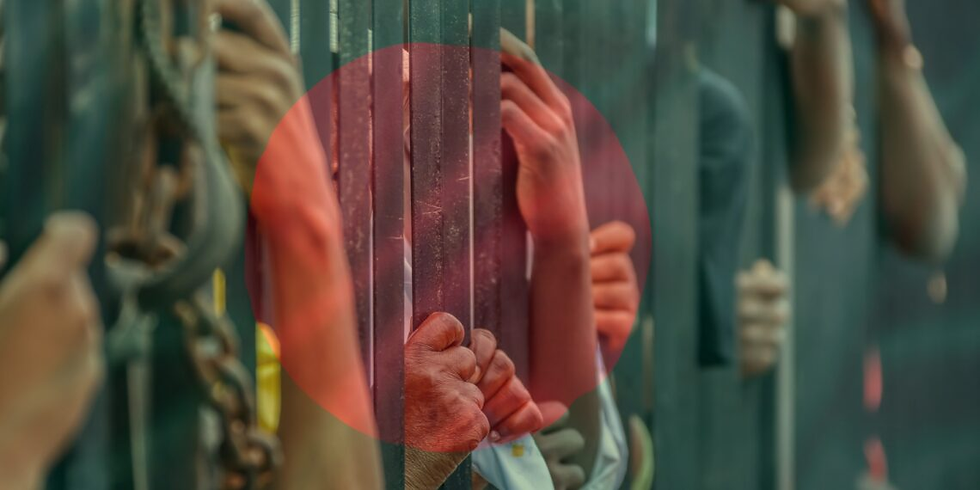OPINION | The International Community’s Role in Addressing Bangladesh’s Minority Rights Violations
- Sep 1, 2025
- 4 min read
By Major General RPS Bhadauria (Retd)

The recent political upheaval in Bangladesh, which saw the ouster of Sheikh Hasina’s government and the establishment of an interim administration, has cast a harsh spotlight on the nation’s fragile human rights landscape. While the transition has been hailed by some as an opportunity for democratic renewal, it has also been accompanied by an alarming surge in violence and repression, with religious and ethnic minorities bearing a significant brunt of the instability. For the international community, which has long-standing interests in Bangladesh’s stability and development, the escalating crisis presents a critical test of its commitment to upholding human rights and democratic principles.
The challenges facing minorities in Bangladesh are not new, but the current power vacuum and political volatility have created a fertile ground for the resurgence of communal tensions. Reports from human rights organisations have documented a disturbing number of attacks on Hindu communities, including the vandalising of temples and properties, as well as increased insecurity for other religious minorities and Indigenous Peoples in regions like the Chittagong Hill Tracts. While the interim government, led by Nobel laureate Dr. Muhammad Yunus, has publicly avowed to protect all citizens and ensure justice, the reality on the ground remains precarious. The exclusion of minority representatives from crucial constitutional reform commissions has further fueled anxieties about their future in a changing Bangladesh.
In this context, the role of the international community is not merely optional; it is essential. Global human rights bodies, civil society groups, and key international actors have a moral and strategic imperative to increase accountability for minority rights violations. The United Nations, particularly through the Office of the High Commissioner for Human Rights (OHCHR), has already taken a commendable first step by conducting a fact-finding mission into the violence that accompanied the political transition. The detailed and impartial documentation of abuses will provide a crucial foundation for any future accountability mechanisms. However, reports alone are not enough. The UN must now leverage its various mechanisms, including the Human Rights Council, to maintain sustained pressure on the interim government to translate its promises into concrete actions. This includes pressing for the swift and impartial investigation of all incidents of communal violence and ensuring that perpetrators are brought to justice, regardless of their political affiliation.
Furthermore, influential nations with significant ties to Bangladesh, including the United States and the European Union, must move beyond general statements of concern and adopt a more robust and proactive diplomatic posture. This should involve consistent and high-level engagement with the interim government, where the protection of minority rights is not just a talking point but a central pillar of bilateral relations. The conditioning of development aid and trade preferences on tangible improvements in the human rights situation, including the repeal or amendment of repressive laws such as the Cyber Security Act, which has been used to stifle dissent and target minorities, can serve as powerful leverage. Public diplomacy, through clear and unequivocal statements from embassies and senior officials, can also send a powerful message of solidarity to vulnerable communities and signal to the authorities in Dhaka that the world is watching.
Beyond state-level diplomacy, the role of international civil society is paramount. Organisations like Amnesty International and Human Rights Watch have been instrumental in documenting abuses and amplifying the voices of victims. Their continued and expanded presence on the ground is crucial for independent monitoring and reporting, which can counteract state-sponsored narratives and provide a more accurate picture of the situation. These organisations can also play a vital role in capacity building, supporting local human rights defenders and civil society groups who are at the forefront of the struggle for justice and equality. Collaborative efforts to provide legal aid to victims of communal violence and support for community-led peace-building initiatives can help to address the immediate needs of affected populations while fostering long-term resilience against future conflicts.
Ultimately, the international community’s response must be coordinated, consistent, and unwavering. A failure to act decisively in the face of escalating minority rights violations would not only be a betrayal of fundamental human rights principles but also risk further destabilising a region of immense strategic importance. By employing a combination of diplomatic pressure, targeted sanctions against individuals responsible for gross human rights violations, robust support for civil society, and a commitment to long-term engagement, the international community can help to ensure that the promise of a more democratic and inclusive Bangladesh becomes a reality for all its citizens, not just a privileged few. The path forward is complex, but a clear and principled stance from global actors can make a profound difference in safeguarding the rights and dignity of Bangladesh’s most vulnerable populations.
About Author

Maj Gen. RPS Bhadauria (Retd) is the Additional Director General of the Centre for Land Warfare Studies (CLAWS), New Delhi, and was formerly the Director of the Centre for Strategic Studies & Simulation (CS3) at USI of India, having served in the Indian Army for 36 years.




Comments